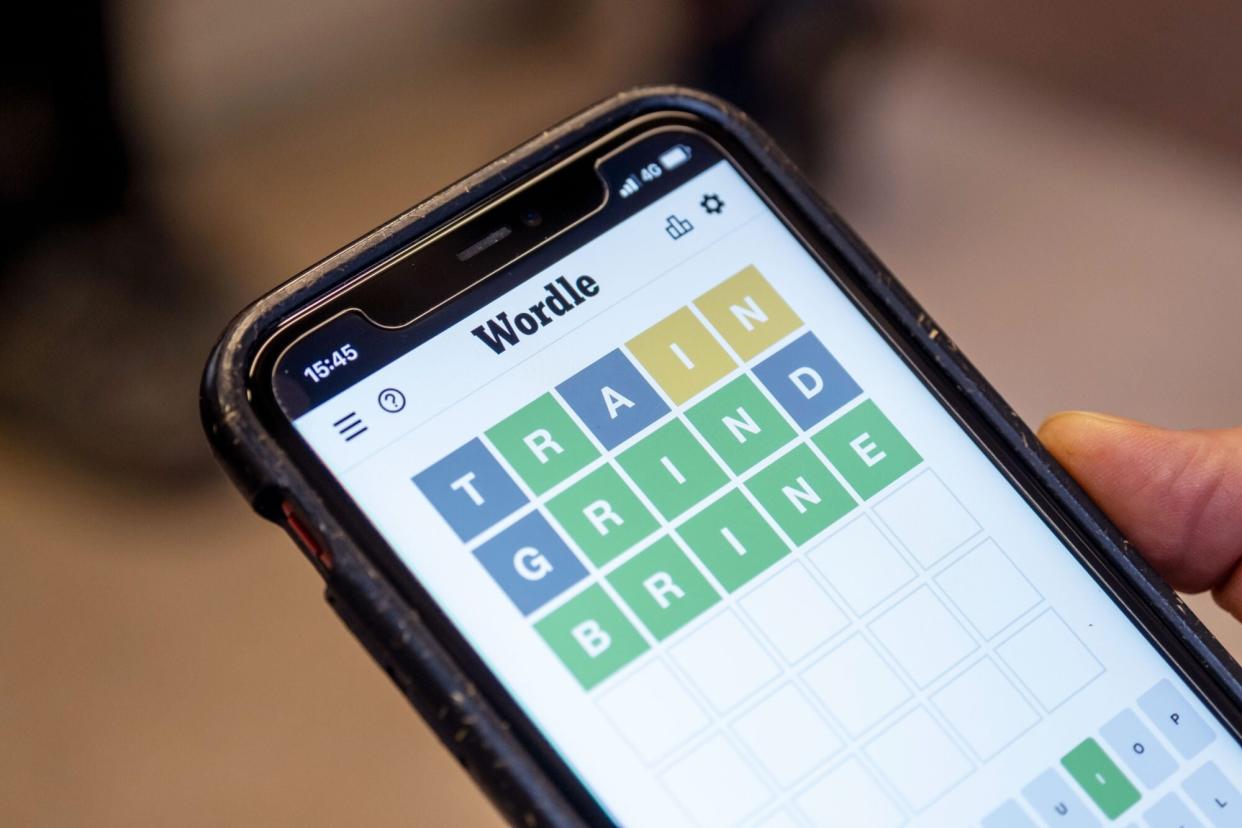If You Play Wordle to Keep Your Brain Sharp, It May Not Be as Effective as You Think

Mike Kemp/In Pictures via Getty Images
If you play Wordle, you likely take pride in guessing the five-letter word correctly, maybe even going so far as to post your wins to social media. The game, which gives players six chances to enter in the correct daily word, is a brain teaser that took the internet by storm in recent months. Despite how challenging it may feel at times, there's one question on our minds: Does playing Wordle make you smarter? According to a recent report by CNN, the answer is, unfortunately, no.
It really comes down to whether or not you're good at playing Wordle, just as a person is good at playing Scrabble or other word games. "Scrabble players recognize words faster, especially in vertical orientation, but we didn't find that those advantages transferred to non-Scrabble-related tasks," Penny Pexman, a professor of psychology at the University of Calgary told CNN. "As soon as you show them some other kind of visual pattern or symbol that's not a letter, they look just like non-experts." She adds that brain training is usually very specific, meaning that just because you've gotten very good at Wordle, doesn't mean those skills are transferrable to anything else.
Some people play brain teaser games to keep their mind sharp, but Wordle may not be very helpful with that either. According to Jonathan King, senior scientific advisor to the director of the Division of Behavioral and Social Research at the National Institute on Aging, there isn't any research so far that suggests brain-training games keep your brain from aging. "It's hard to find training that translates to a long-term change in the brain that will hopefully protect you from cognitive impairment or decline or dementia," King told CNN.
There is still a way to maximize the benefits of playing Wordle, though. To be successful at the game, you don't need a large vocabulary or to know the definition of the words you're plugging in, but you do need to be able to manipulate the information you're being given. "It's like a mental sketch pad where you hold the visual information in mind and you manipulate it, which is a particular skill some people have a lot of capacity for and other people less so," Pexman says.
Additionally, the game challenges players' ability to focus. But despite exercising areas of the brain responsible for visual memory and focus, Aaron Seitz, a professor of psychology at the University of California, told CNN that these brain muscles begin to atrophy overtime. "As soon as you begin using strategies to solve the puzzle, you've taken the load off of your attention and memory processes which may lessen Wordle's potential benefits," Seitz says. Adding that his advice is to play a game that provides a challenge and to switch it up as soon as you become good at it.

